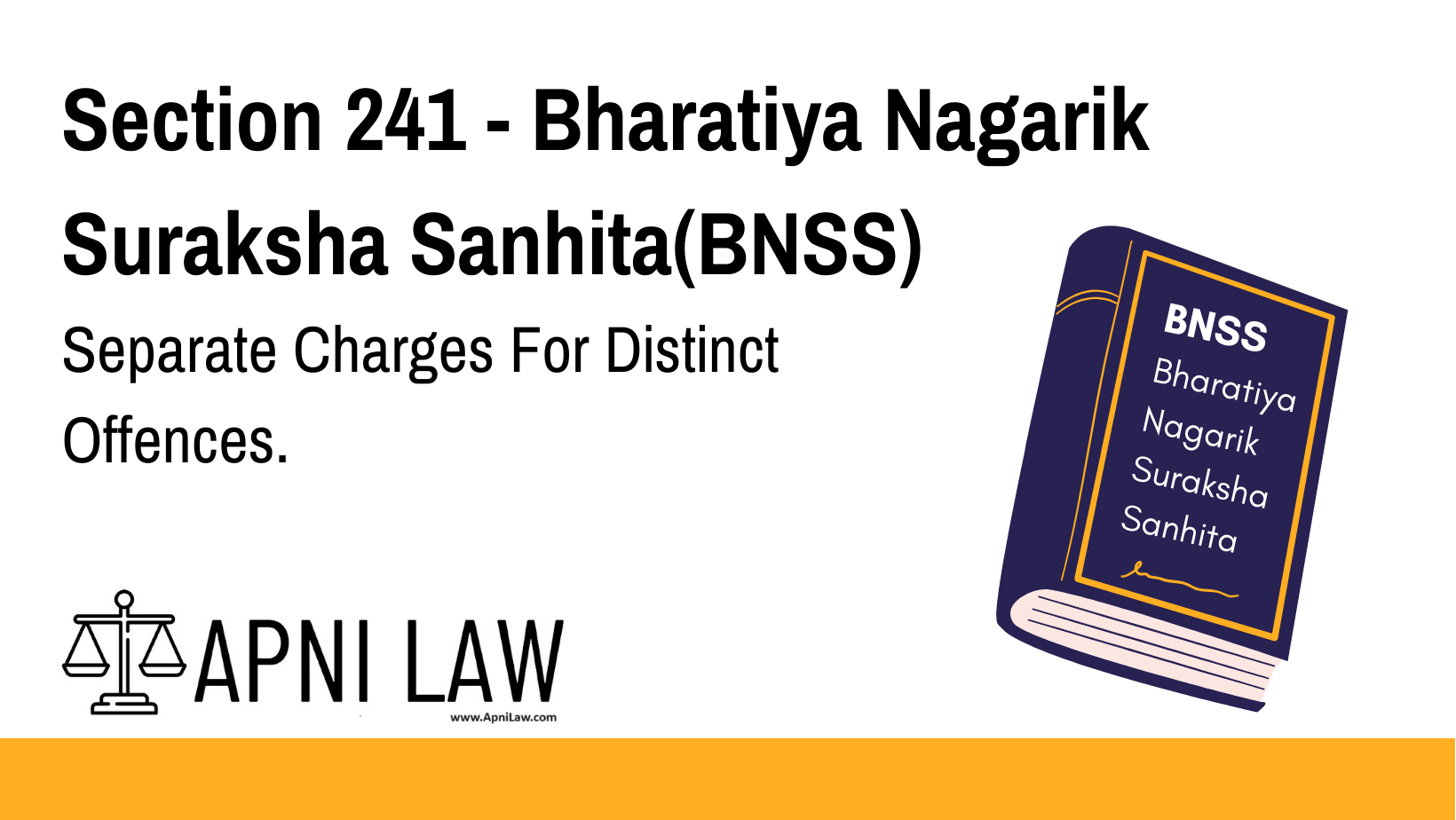Code:
(1) For every distinct offence of which any person is accused there shall be a separate charge, and every such charge shall be tried separately:
Provided that where the accused person, by an application in writing, so desires and the Magistrate is of opinion that such person is not likely to be prejudiced thereby, the Magistrate may try together all or any number of the charges framed against such person.
(2) Nothing in sub-section (1) shall affect the operation of the provisions of sections 242, 243, 244 and 246.
A is accused of a theft on one occasion, and of causing grievous hurt on another occasion. A must be separately charged and separately tried for the theft and causing grievous hurt.
Explanation:
Section 241 of the BNSS mandates that every distinct offense must be charged and tried separately. This ensures fairness and prevents confusion in the legal proceedings. However, the law allows for exceptions. If the accused person requests it in writing and the Magistrate believes it won’t cause prejudice, they can try multiple charges together.
Illustration:
A is accused of theft on one occasion and causing grievous hurt on another occasion. A must be separately charged and separately tried for the theft and causing grievous hurt.
Common Questions and Answers:
Q. What does “distinct offense” mean?
A. It refers to offenses that are separate in nature, time, and location. For instance, theft and assault are distinct offenses.
Q. When can multiple charges be tried together?
A. Only if the accused requests it in writing and the Magistrate believes it won’t cause prejudice.
Q. What are the sections mentioned in sub-section (2)?
A. Sections 242, 243, 244, and 246 of the BNSS. These sections deal with various aspects of trial, such as joinder of offenses, transfer of cases, and procedures for summary trials.













